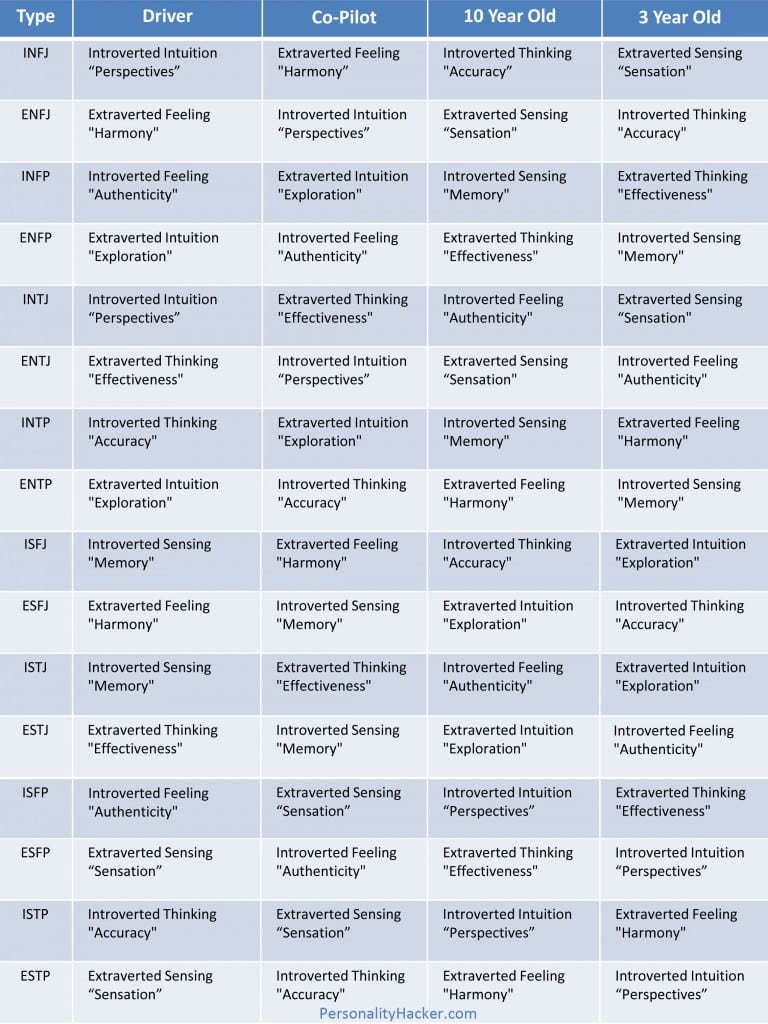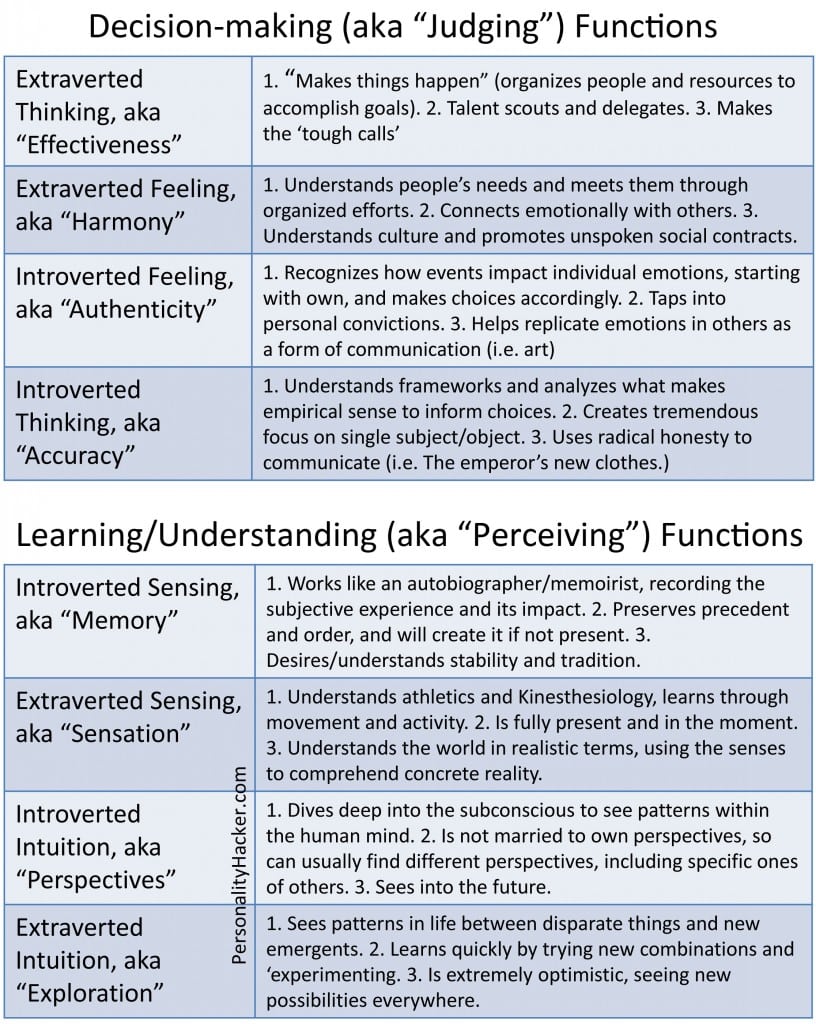How Cognitive Functions
fit in the Car Model
Cognitive Function “Stack” of Each Type
Cognitive Functions Overview
Want to learn more?
Discover Your Personal Genius
When you’re ready, here are five ways we can help you grow…
1. Reclaim Authorship of Your Life (Free Audio): Become the Main Character Your Own Life
2. Regulate your Body, Emotions, Thoughts, & Intuition with Self-Regulation Mastery
3. Understand yourself at a deeper level with a Personality Owners Manual
4. Master the Art of “Deep Reading” people in Profiler Training
5. Rewire your Brain & Build a Life that Fits You in the Personality Life Path




Share:
Why Is the "Co-Pilot" Process Vital for Growth?
3 Biggest Mistakes in Self-Typing (aka "Help! I can't figure out my type!")
31 comments
I think I’ve got this. The driver is the type’s E/I, Plus:
-if they’re an EJ or an IP then the judging function
-if they’re an EP or an IJ then the perceiving function
The copilot is the opposite of the type’s E/I Plus the judging/perceiving function that isn’t their driver.
10 year old is the polar opposite of the copilot.
3 year old is the polar opposite of the driver.
I’m not sure if it makes sense because of this or just because it’s going to help me make sense of it, but Extraversion determines whether the person will drive with their judging or perceiving function. So an EJ will drive with Judging, EP will drive with perceiving. IJ and IP will drive with the opposite.
And then the rest of the passengers just fit into place after that.
Right?
The more I look into this the more confused I become! I think I’m either an INFJ or an INTJ. However reading this I’m confused again as I feel like Extraverted sensing is very strong in me but that comes up as the 3 yr old option in both.
Hey, I’m not sure if you mentioned this elsewhere on the site, but why do some types lead with Feeling/Thinking while it seems that most other types lead with the Intuition/Sensing?
Just remembered to check back for your reply. Thank you for taking the time to provide so much food for thought.
It is an interesting thought to look at our personalities in the context of our families/close social groups. I can definitely see strengths (and weaknesses) in how I “use” my personality that are direct reflections of my immediate family’s culture and values.
I’ll look into Beebe’s work — if nothing else it will be something interesting to think about.
Frances
There are theories that indicate the four ‘shadow functions’ impact us in predictable ways. For example, John Beebe’s 8 function model. While I love the elegance of his model (I’m a sucker for an elegant model), my observations haven’t yet fully aligned with it. That’s one of the reasons we don’t teach it, actually.
My observations have been that the four shadow functions impact people in different ways, and in particular based on the heaviest influences in their lives.
For example, I grew up in a heavily Accuracy/Harmony (Introverted Thinking/Extraverted Harmony) influenced household. Only my brother used something other than Accuracy or Harmony. As an ENTJ he used Effectiveness (Extraverted Thinking). There was almost no Authenticity (Introverted Feeling) represented, since it only really showed up as my brother’s 3 Yr Old process. (Obviously we were all using it as it’s a basic function of the mind, but it wasn’t ‘in our car’ so to speak). I’ve struggled my entire life to be in touch with my own emotional processes. They were never really honored in my family for any of us and so it just wasn’t on anyone’s radar. I have a friend who is an ENTP and it’s very different for her. She grew up in an environment that was always ‘checking in’ with emotions. Her Achilles Heel is Effectiveness – it’s difficult for her to see in terms of running systems or managing other people.
One anecdote doesn’t a theory make, but I’m using it an example of how our influences in life may impact our relationship with our shadow processes.
Typing family members and/or the biggest influences in your life as well circumstances and situations you may have been thrown into (and thus forced to develop certain functions for self-preservation) may help you understand your relationship with your shadow processes.
Definitely check out Beebe’s work, though. Cause I could be totally wrong and he could be totally right. :P
A